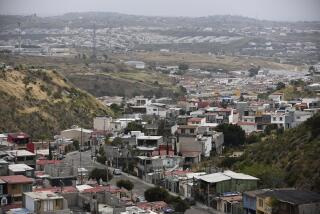Outcry after Indonesia executes 6 for drug trafficking
An Indonesian firing squad executed six convicted drug traffickers early Sunday, sparking condemnations from human rights groups and foreign leaders.
The Netherlands, Indonesia’s former colonial ruler, said it would withdraw its ambassador and Brazilian President Dilma Rousseff said she was “outraged and dismayed” after Dutch and Brazilian nationals were among those put to death just after midnight local time in the center of Java, Indonesia’s most populous island.
Indonesia has a history of capital punishment for drug crimes, but the convicted traffickers were the first to be executed under new President Joko Widodo, who came to power last year on a reformist ticket.
European officials called the move “deeply regrettable” and the Dutch government issued a harsh statement after its pleas to commute the sentence of its citizen, Ang Kiem Soe, were ignored.
“The Netherlands condemns the execution of Mr. Ang in Indonesia,” Dutch Foreign Affairs Minister Bert Koenders said. “It is tragic that he and five others have been executed. My sympathies go out to their families, for whom this brings a dramatic end to years of uncertainty.”
Rousseff had already registered her anger at the planned execution of Brazilian national Marco Archer Cardoso Moreira, 53, who was arrested in Jakarta in 2003 after police discovered nearly 30 pounds of cocaine in his luggage. Brazil had sought to have Moreira extradited to serve his sentence in a Brazilian jail.
“Relations between the two countries have been affected,” Rousseff said.
The others executed were Indonesian Rani Andriani, Namaona Denis of Malawi, Daniel Enemuo of Nigeria and Tran Bich Hanh of Vietnam.
Widodo, the populist former governor of Jakarta, the capital, campaigned on a program of change, but hopes that he would consider an overhaul of capital punishment laws or granting clemency to death-row inmates were dashed in December when he said that drug peddlers had “destroyed the future of the nation.”
Indonesia, a vast archipelago nation, has long been a key global transit point for narcotics. Earlier this month, Indonesian police made what was described as their biggest ever drug bust, reportedly seizing more than 1,800 pounds of methamphetamine and arresting Wong Chi Ping, a 40-year-old from Hong Kong who is said to be leader of one of the country’s four major drug syndicates.
Around 60 people are on death row for drug offenses, and the government has announced that 20 executions will be carried out this year, according to human rights groups.
“Drug-related offenses do not meet the threshold of the ‘most serious crimes’ for which the death penalty can be imposed under international law,” Amnesty International said in a statement before the executions.
Previous Indonesian governments have sought to reduce the use of the death penalty to ease the sentences of its own citizens facing the same punishment overseas. Indonesia observed a four-year hiatus in executions until Widodo’s predecessor, Susilo Bambang Yudhoyono, resumed them in 2013.
David McRae, a senior research fellow at the Asia Institute at the University of Melbourne in Australia, said Yudhoyono faced a public backlash over his decision to grant clemency to four convicted drug traffickers, after which he “abandoned any softening of his stance” on capital punishment.
Other high-profile cases of foreigners facing execution include Andrew Chan and Myuran Sukumaran, two Australians serving time on the holiday island of Bali since 2005, and Lyndsey Sandiford, a British grandmother, sentenced to death last year. Widodo has so far ignored Australian Prime Minister Tony Abbott’s pleas for clemency for Chan and Sukumaran.
“Last night’s mass shootings were a tragedy,” the Australians’ lawyer, Julian McMahon, said in an email. “I love Indonesia, it’s on the cusp of being a giant in the 21st century, but these shootings are so futile, they undermine the confidence people have.”
Indonesia’s capital punishment policy leaves it open to charges of hypocrisy, given that the Jakarta government is seeking a pardon for Satinah Binti Jumadi Ahmad, an Indonesian domestic worker who has been on death row in Saudi Arabia since 2010.
“It is ironic to see how we strive to save lives of Indonesians abroad from death penalty executions while in this country Indonesia practices the execution of other countries’ citizens,” said Indri D. Saptaningrum, executive director of ELSAM, a Jakarta-based human rights group.
ELSAM believes that corruption in the judiciary and police casts doubt on whether suspects receive fair trials.
Last week a police sergeant was arrested in Jakarta and charged with possession of thousands of ecstasy pills as well as several hundred grams of crystal methamphetamine.
Widodo’s pick for national police chief, Budi Gunawan, has had his appointment postponed due to corruption charges made by Indonesia’s national anti-graft commission.
Roughneen is a special correspondent. Staff writer Shashank Bengali contributed to this report from Mumbai, India.
More to Read
Start your day right
Sign up for Essential California for news, features and recommendations from the L.A. Times and beyond in your inbox six days a week.
You may occasionally receive promotional content from the Los Angeles Times.






